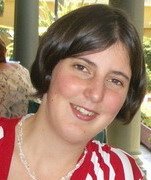The difference between what is required of us in the workplace and in our education is vast. Fortunately, programmes like WOW and the Thusanani project are beginning to address this problem.
At university, we can get away with missing some lectures, sitting at the back of the class and never asking a question. The pervasive attitude on campus is that as long as you pass, it’s fine. My family jokes that, at university, everyone fails something- almost as a rite of passage. This is a culture of mediocrity rather than excellence, where we manage if we produce unremarkable assignments. But in the workplace, we need to stand out. Those who are mediocre, it is becoming increasingly apparent, simply will not make the grade, particularly in an environment that is becoming globally competitive.
Success in education does not guarantee a smooth ride into the workplace. Richard Branson never went to university; in fact he left school at fifteen and started his own business at sixteen.
Several speakers on the WOW programme have commented on the lack of ‘soft’ skills taught in our education system. To be successful in a work environment, we need to be able to work in teams and manage conflict effectively. We are expected to develop these kinds of skills elsewhere. At university, they are an added extra. In the world of work, they are a necessity. So is it important to try to find ways to teach everyone these skills?
Unfortunately it seems that we are not receptive to being taught soft skills. A few years ago, UCT introduced a course called “Becoming a Professional” into its first year medical curriculum. The course teaches students the basics of professional conduct, focusing strongly on teamwork and approaching clients and colleagues in a non-judgemental manner. These are all vital skills, and particularly important as someone working in the medical field. Yet on campus I would always find students who complained bitterly about having to do this course. Most found it a waste of time. Perhaps our education system needs to re-look at how it prepares students for life and for work, while in the meantime, we need to take personal responsibility for developing our own set of valuable skills.
This blog reflects on life at work at comments on the latest news that shapes my 9-5 working day in a Corporate Communications consultancy.
About Me
- Susan Arthur
- I am a born and bred South African who has always loved to read and write. As a child my mother used to read to me and my siblings, from classics like the “Lord of the Rings” but later also from her own stories. She would write children’s stories and then use us as her test audience, but I loved to hear what she had written long after my siblings had tired of it. So I grew up in an environment of reading and writing, which inspired my love of these things. I hope to write a great book some day, and have learnt first hand the determination and will that it takes. My love of English inspired me to continue my study of it at university. I majored in Law and English in a BA degree at UCT where I found that I took to English much more than law. I enjoyed learning about South Africa’s history and the development of our liberal Constitution, which increasingly made me committed to the hope this country has for the future. Ideally, I’d like to find myself in a job where I am able to write; that allows a good mix of time spent with people and being able to work on my own.
Tuesday, 01 May 2007
Subscribe to:
Post Comments (Atom)

2 comments:
Dear Susan, I completely agree with you that in most of the cases education in South Africa do not prepare students to develop skills that will help them in their chosen careers.
Apart from teaching them knowledge and facts about the world out-there, teachers should be more concerned about transforming their students into people with qualities, virtues, values and principles-which they can later use in life or at the work-place.
In this regard, I suggest that you watch a movie with Richard Draifus-the main character. The movie I think is called: "Mr Holland's Opus". I think you would like it!
Susan,
I suppose as students we are conditioned to think that those sorts of skills are 'beneath' us. It is time that African universities in general re-view their educational style from secondary to tertiary. Imagine how much more prepared we would be for the work place if we had such knowledge at our disposal. It is indeed incumbent on us to learn these skills ourselves, trouble is, some people are not even aware that they need these skills or that they exist. I think that the WOW model needs to be replicated and spread to other faculties.
Post a Comment